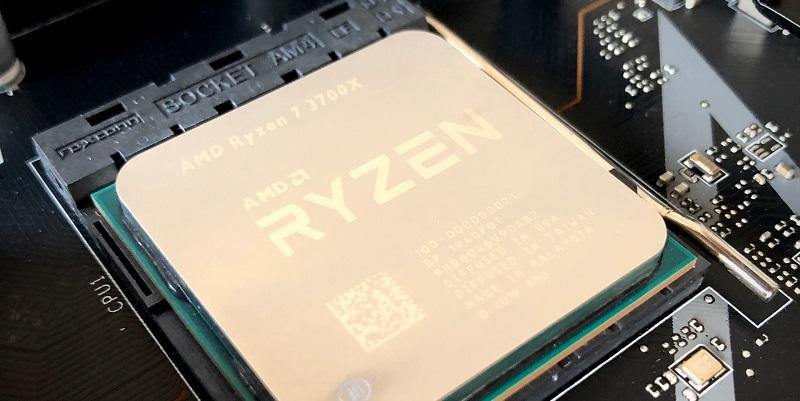The AMD Radeon RX 6700 XT arrives as a mid-range graphics card, promising exceptional performance for 1440p gaming enthusiasts. Packed with innovative features and impressive specifications, this GPU aims to step up its game and offer a competitive alternative to Nvidia’s offerings. In this article, we will delve into the detailed specifications, competitor comparison, performance analysis, and suitability of the RX 6700 XT for various gaming scenarios.
Specifications
The RX 7700 XT boasts the cutting-edge Navi 33 GPU architecture, a 192-bit bus, and a substantial 12GB of GDDR6 memory. With this combination of technology, AMD has packed quite a punch into this mid-range card, offering gamers a powerful and immersive gaming experience.
Competitor Comparison
Direct competition with Nvidia’s RTX 4060 Ti and RTX 4070 sets the stage for the RX 7700 XT. AMD has positioned their flagship mid-range card to rival the performance and value offered by Nvidia’s offerings, making it an intriguing option for gamers seeking excellent value for their money.
Rasterization Performance
When it comes to rasterization performance, the RX 7700 XT holds its ground against its Nvidia counterparts, delivering comparable or even superior results. This means that gamers can expect smooth and detailed visuals during gameplay, especially at the popular 1440p resolution.
Ray Tracing and Upscaling Performance
In terms of ray tracing and upscaling, the RX 7700 XT falls short compared to Nvidia’s premium offerings. While it handles traditional rendering admirably, the card struggles to match the ray tracing and upscaling capabilities of its competition. However, if ray tracing isn’t a priority for you, the RX 7700 XT remains a worthy consideration.
Performance Comparison with RTX 4070
Stacking up against the Nvidia RTX 4070, the RX 7700 XT holds its ground commendably at 1080p, 1440p, and 4K gaming resolutions. This makes it a particularly enticing choice for gamers looking to future-proof their systems or aspire to enjoy stunning visuals across a variety of gaming scenarios.
Gaming at 1440p
The RX 7700 XT truly shines when it comes to 1440p gaming. Its power and optimized performance make it an ideal choice for gamers seeking a visually immersive experience at this popular resolution. Furthermore, considering its competitive pricing, it becomes an even more attractive option for enthusiasts looking for top-notch performance without breaking the bank.
Alternative to Nvidia’s Premium Offerings
For gamers who prioritize performance over ray tracing, the RX 7700 XT emerges as a solid alternative to Nvidia’s premium offerings. Its exceptional rasterization performance, combined with its competitive price point, make it a reasonable choice for those looking to optimize their gaming experience without burning a hole in their wallets.
Viability for 4K Gaming
While the RX 7700 XT possesses the potential for 4K gaming with its 192-bit bus and powerful architecture, the card may require upscaling to deliver the smoothest experience. Gamers aiming for 4K resolutions should keep this in mind and consider whether they are willing to compromise on certain visual aspects or invest in a higher-end option.
The AMD Radeon RX 7700 XT presents itself as a remarkable mid-range graphics card, poised to deliver exceptional performance and immersive gaming experiences. With its feature-rich architecture, the RX 7700 XT performs exceptionally well in rasterization, making it an excellent choice for 1440p gaming. While it may not match up to Nvidia’s premium offerings in terms of ray tracing and upscaling capabilities, its competitive price and strong overall performance make it an attractive option for those seeking a mid-range powerhouse. As a final note, gamers with slightly deeper pockets may want to consider the RX 7800 XT for even more competitive performance.

